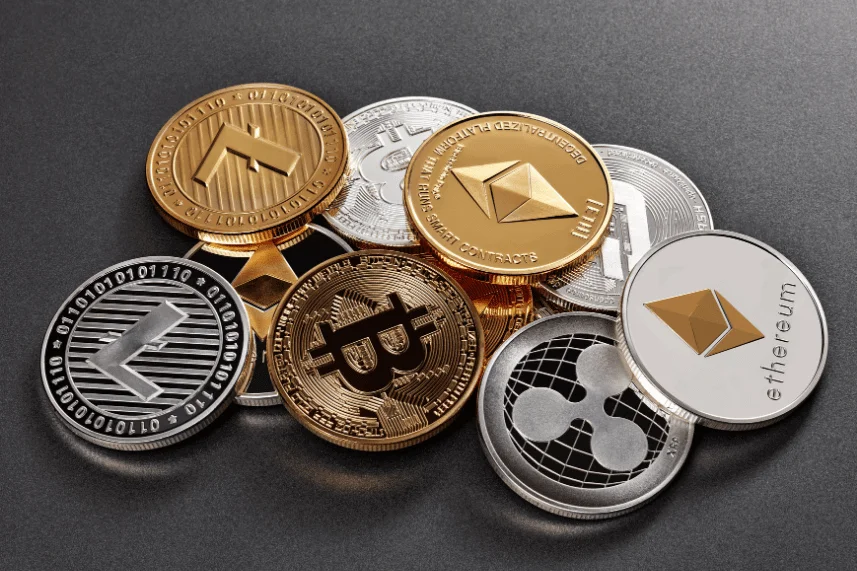Hey! If you’re tired of hearing a lot about cryptocurrency and want to understand now what it’s all about, you’re in the right place. Cryptocurrencies can seem complex, but we’ll break them down into simple pieces. Let’s explore the Guide to Cryptocurrency. What cryptocurrency is, how it works, and why it has become so popular.
The future of money is digital currency.
Bill Gates
What is Cryptocurrency?
Cryptocurrency is a type of digital or virtual money that uses cryptography for security. Unlike traditional currencies like dollars or euros, cryptocurrencies are decentralized and operate on technology called blockchain.
Key Concepts to Know
1. Blockchain Technology
A blockchain is a digital ledger that records all transactions across a network of computers. Each transaction is added to a block and linked to the previous block, forming a chain. This makes the data secure and transparent.
2. Decentralization
Most cryptocurrencies operate on a decentralized network of computers (nodes). This means no single entity controls the entire network, making it more secure and resistant to censorship.
3. Cryptography
Cryptography is the practice of securing information by transforming it into an unreadable format, only accessible to those with the key to decrypt it. This ensures the security and integrity of cryptocurrency transactions.
Popular Cryptocurrencies
There are thousands of cryptocurrencies, but here are a few of the most well-known:
1. Bitcoin (BTC)
- Created in 2009 by an unknown person or group using the pseudonym Satoshi Nakamoto.
- The first and most valuable cryptocurrency.
- Often referred to as digital gold due to its limited supply of 21 million coins.
2. Ethereum (ETH)
- Launched in 2015 by Vitalik Buterin.
- Known for its smart contract functionality, which allows developers to create decentralized applications (DApps).
- Uses its own currency called Ether.
3. Litecoin (LTC)
- Created in 2011 by Charlie Lee.
- Similar to Bitcoin but with faster transaction times and a different hashing algorithm.
4. Ripple (XRP)
- Focused on facilitating fast, low-cost international payments.
- Operates differently from other cryptocurrencies, with a central company (Ripple Labs) involved.

How to Get Started with Cryptocurrency
1. Research
Before investing in any cryptocurrency, it’s essential to do your research. Understand the technology, the team behind it, and its use cases.
2. Choose a Wallet
A cryptocurrency wallet is a digital tool that allows you to store, send, and receive cryptocurrencies. There are different types of wallets:
- Hot Wallets: Connected to the internet (e.g., mobile apps, online wallets).
- Cold Wallets: Not connected to the internet, offering more security (e.g., hardware wallets, paper wallets).
3. Select an Exchange
Cryptocurrency exchanges are platforms where you can buy, sell, and trade cryptocurrencies. Some popular exchanges include:
- Coinbase
- Binance
- Kraken
4. Buy Cryptocurrency
Once you’ve chosen an exchange, you can create an account, verify your identity, and deposit funds (usually in fiat currency like USD or EUR) to buy cryptocurrencies.
Using Cryptocurrency
1. Transactions
You can use cryptocurrencies to buy goods and services, just like traditional money. More businesses are accepting cryptocurrencies as payment.
2. Investing
Many people buy and hold cryptocurrencies as an investment, hoping their value will increase over time.
3. Trading
Some people actively trade cryptocurrencies to take advantage of price fluctuations. This can be risky and requires a good understanding of the market.
Risks and Considerations
1. Volatility
Cryptocurrency prices can be highly volatile, with significant price swings happening in short periods. This can lead to substantial gains or losses.
2. Security
While blockchain technology is secure, individual users must protect their wallets and private keys. Losing access to your wallet means losing your cryptocurrency.
3. Regulation
Cryptocurrency regulations vary by country and can change over time. It’s important to stay informed about the legal status of cryptocurrencies in your area.
Future of Cryptocurrency
The future of cryptocurrency is still uncertain, but it has the potential to revolutionize the financial system. Here are a few trends to watch:
- Increased Adoption: More businesses and individuals are beginning to use and accept cryptocurrencies.
- Regulatory Developments: Governments are working on creating clear regulations for cryptocurrencies.
- Technological Advances: Innovations like decentralized finance (DeFi) and non-fungible tokens (NFTs) are expanding the use cases for blockchain technology.
Cryptocurrency is an exciting and evolving field that offers new opportunities for finance and technology. By understanding the basics and staying informed, you can navigate this new landscape with confidence. Remember to do your research, protect your assets, and stay aware of the risks involved.

















Leave a Reply
View Comments